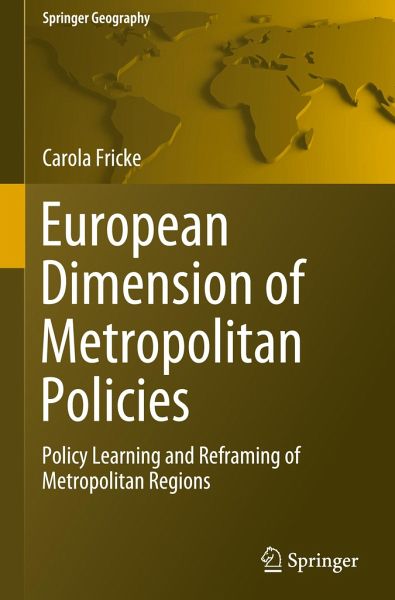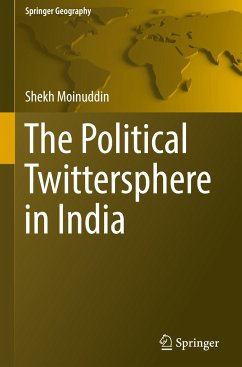
European Dimension of Metropolitan Policies
Policy Learning and Reframing of Metropolitan Regions

PAYBACK Punkte
65 °P sammeln!
This book questions how policies for the metropolis become Europeanised. The book analyses how spatial concepts and political ideas permeate the European multi-level system. Through an interpretive comparison of five contexts, the book provides an overview of the European orientation tracing two interdependent developments. First, the book examines references to 'Europe' in national and subnational policies. In French and German policies, metropolitan regions are increasingly framed as being central not only for inter-municipal coordination, but also as nodes within the European space. Moreove...
This book questions how policies for the metropolis become Europeanised. The book analyses how spatial concepts and political ideas permeate the European multi-level system.
Through an interpretive comparison of five contexts, the book provides an overview of the European orientation tracing two interdependent developments. First, the book examines references to 'Europe' in national and subnational policies. In French and German policies, metropolitan regions are increasingly framed as being central not only for inter-municipal coordination, but also as nodes within the European space. Moreover, Europeanised metropolitan regions such as Lyon and Stuttgart develop European strategies. The second development shows how metropolitan regions appear as actors and issues in the European policy arena, contributing to a tentative and implicit metropolitan dimension.
This multi-scalar analysis is of interest for scholars and practitioners specialised in metropolitan regions, European urban and regional policies, geography and related areas.
Through an interpretive comparison of five contexts, the book provides an overview of the European orientation tracing two interdependent developments. First, the book examines references to 'Europe' in national and subnational policies. In French and German policies, metropolitan regions are increasingly framed as being central not only for inter-municipal coordination, but also as nodes within the European space. Moreover, Europeanised metropolitan regions such as Lyon and Stuttgart develop European strategies. The second development shows how metropolitan regions appear as actors and issues in the European policy arena, contributing to a tentative and implicit metropolitan dimension.
This multi-scalar analysis is of interest for scholars and practitioners specialised in metropolitan regions, European urban and regional policies, geography and related areas.












